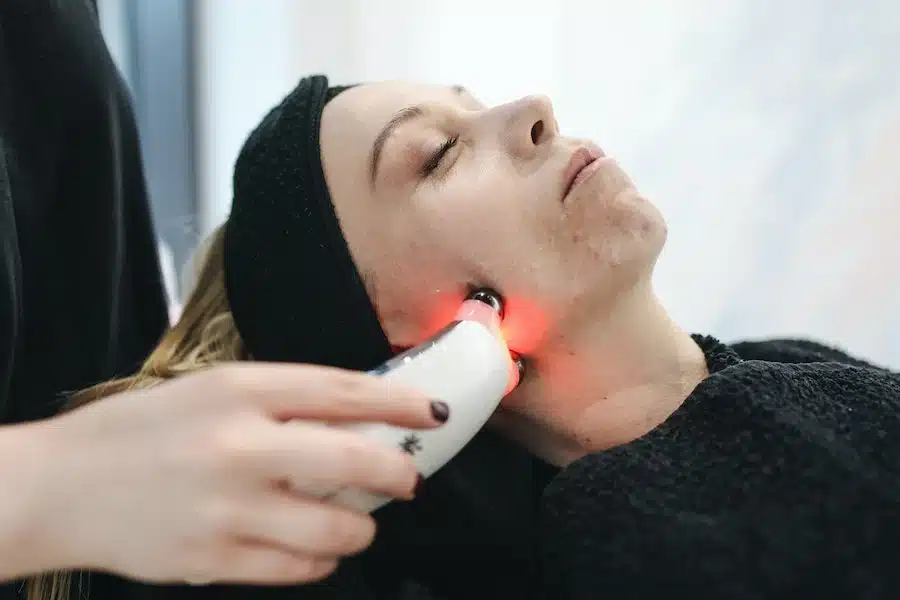
Aging, pollution, stress, and other factors can contribute to the discoloration of the skin. This often results in the appearance of dark spots, uneven skin tone, and blemishes. Face whitening creams and laser treatments are two popular methods used to address these issues. While both are effective in lightening the skin, they work in different ways and have their own unique advantages and disadvantages. In this article, we will compare face whitening creams to laser treatments, exploring the pros and cons of each method to help you decide which is better suited for your needs.
Face Whitening Creams:
Face whitening creams are topical products designed to lighten the skin. They contain ingredients such as hydroquinone, kojic acid, and arbutin that inhibit the production of melanin, the pigment responsible for skin color. Whitening creams work by blocking an enzyme called tyrosinase, which is involved in the production of melanin. By inhibiting tyrosinase, the skin becomes lighter and more even in tone.
Pros:
- Cost-effective: Face whitening creams are relatively inexpensive compared to laser treatments. They are easily accessible and can be purchased from drugstores, online, or at a beauty supply store.
- Convenience: Using face whitening creams is easy and can be done at home. There is no need for a trip to a dermatologist or skin care clinic.
- Availability: Face whitening creams are widely available and come in different forms such as lotions, creams, and serums, allowing for flexibility in usage.
Cons:
- Slow results: Face whitening creams can take several weeks or even months to show noticeable results. This may not be ideal for individuals looking for fast results.
- Risk of skin irritation: Some individuals may experience skin irritation, redness, or itching when using face whitening creams. This is often due to the presence of harsh ingredients in the product.
- Limited effectiveness: Face whitening creams may not be effective in treating severe cases of hyperpigmentation or dark spots.
Laser Treatments:
Laser treatments involve the use of intense light energy to target and break down the melanin pigment in the skin. This leads to a reduction in the appearance of dark spots and blemishes. Laser treatments are performed by a dermatologist or a trained skin care specialist.
Pros:
- Fast results: Laser treatments can produce noticeable results in a short period of time. This is ideal for individuals looking for immediate improvement in their skin’s appearance.
- Long-lasting results: Laser treatments can provide long-lasting results compared to face whitening creams, which may require ongoing use to maintain results.
- Customizable: Laser treatments can be customized to meet the needs of each individual. Different types of lasers can be used, depending on the severity of the condition being treated.
Cons:
- Expensive: Laser treatments can be costly, especially when compared to face whitening creams.
- Risk of side effects: Laser treatments can cause side effects such as redness, swelling, and blistering. These side effects are typically temporary but can be severe in some cases.
- Requires professional supervision: Laser treatments require the expertise of a dermatologist or skin care specialist. Individuals should only seek treatment from a licensed professional to ensure the safety and effectiveness of the procedure.
Comparison:
When comparing face whitening creams to laser treatments, it is important to consider the severity of the condition being treated, the desired results, and the cost. Face whitening creams are generally best suited for mild cases of hyperpigmentation or for individuals who want to maintain an even skin tone. Laser treatments, on the other hand, are ideal for individuals with more severe hyperpigmentation or who want to achieve faster and longer-lasting results.
Another important consideration when choosing between face whitening creams and laser treatments is the potential side effects. While both methods can cause skin irritation and other side effects, the risk of these side effects may be higher with laser treatments. This is because laser treatments involve the use of intense light energy, which can cause damage to the skin if not performed properly.
It is also important to note that laser treatments may not be suitable for individuals with certain skin types or conditions. For example, individuals with dark skin or a history of keloids may not be good candidates for laser treatments. In these cases, face whitening creams may be a safer and more effective option.
When it comes to cost, face whitening creams are generally more affordable than laser treatments. While the cost of face whitening creams can vary depending on the brand and the specific product, they are generally more accessible to individuals with limited budgets. Laser treatments, on the other hand, can be quite expensive and may require multiple sessions to achieve the desired results.
One advantage of laser treatments is that they can be customized to meet the specific needs of each individual. Different types of lasers can be used depending on the severity of the condition being treated. For example, some lasers are better suited for treating deep, stubborn hyperpigmentation, while others are better for targeting superficial discoloration. This allows for a more personalized approach to treatment, which may lead to better results.
Conclusion:
When it comes to choosing between face whitening creams and laser treatments, there is no one-size-fits-all solution. Both methods have their own unique advantages and disadvantages, and the best option for each individual will depend on factors such as the severity of the condition being treated, the desired results, and the budget.
For individuals with mild cases of hyperpigmentation or those who want to maintain an even skin tone, face whitening creams may be a good option. They are cost-effective, convenient, and widely available. However, they may take longer to produce results and may not be effective for more severe cases of hyperpigmentation.
Laser treatments, on the other hand, can produce fast and long-lasting results and can be customized to meet the needs of each individual. However, they can be expensive and may cause side effects such as redness and swelling. It is important to seek treatment from a licensed dermatologist or skin care specialist to ensure the safety and effectiveness of the procedure.
In the end, the decision to use face whitening creams or laser treatments should be made after careful consideration of the individual’s needs and preferences. Consulting with a licensed professional can help individuals make an informed decision and achieve the best possible results.








